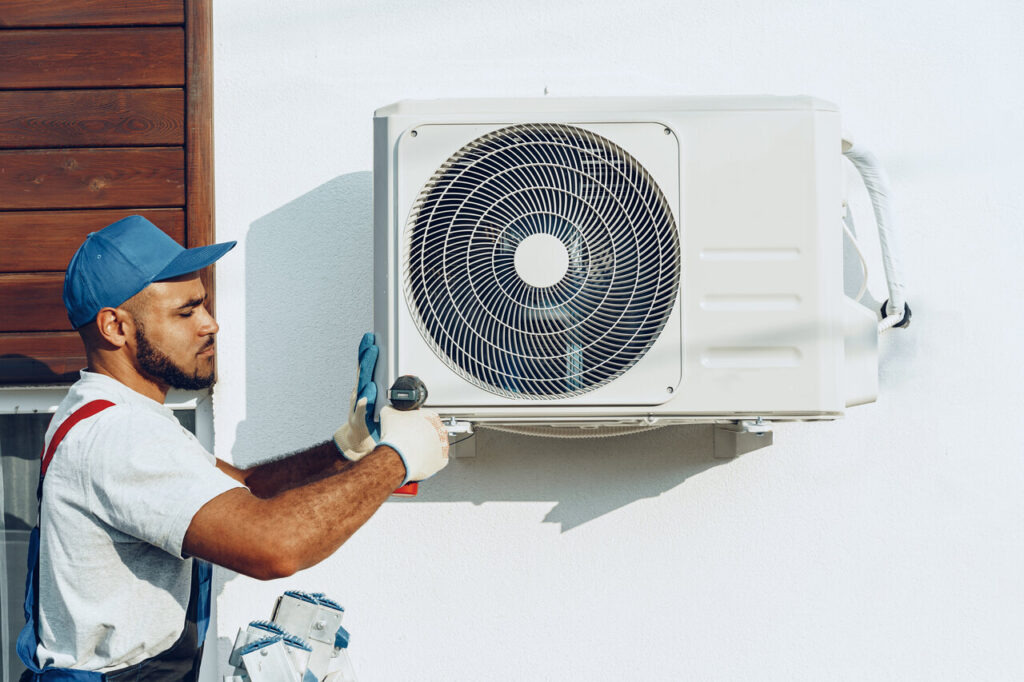As homeowners continue to search for efficient and versatile solutions for their home’s heating and cooling needs, heat pump installations have become increasingly popular. Heat pumps offer an energy-efficient alternative to traditional furnaces and air conditioners, providing both heat in the winter and cooling in the summer. These systems work by transferring heat energy between the indoors and outdoors, ensuring your home remains comfortable all year round. We will explore the key advantages of installing a heat pump in your home, the different types of heat pumps available, and the importance of proper installation and maintenance by our experienced professionals. By understanding the benefits and considerations of heat pump installations, you can make an informed decision about whether this innovative technology is right for your home comfort needs.
Key Advantages of Heat Pump Installations
Heat pumps have become an increasingly popular choice for homeowners seeking an efficient and versatile heating and cooling system. Here are some of the main benefits you can enjoy by installing a heat pump system in your home:
Energy Efficiency and Cost Savings
Heat pumps are known for their energy efficiency, as they move heat between the indoors and outdoors rather than generating it. This process allows them to consume less energy compared to conventional furnaces and air conditioners, ultimately translating into cost savings on your utility bills. By choosing a high-efficiency heat pump system, you can further maximize your energy savings and reduce your environmental impact.
Year-Round Comfort
One of the most appealing features of heat pumps is their ability to provide both heating and cooling. A single system can efficiently heat your home during the winter months, then reverse its function to cool your home during the summer. This dual capability ensures your home remains comfortable throughout the year while simplifying your home’s HVAC equipment.
Eco-Friendly Solution
Heat pumps are an environmentally friendly choice for home heating and cooling, as they utilize energy from the air or ground rather than relying on fossil fuels. By reducing energy consumption and greenhouse gas emissions, heat pumps contribute to a smaller environmental footprint, making them an ideal option for eco-conscious homeowners.
Versatility and Adaptability
Heat pumps can be successfully integrated into various home styles and systems, with several different types available to suit your specific needs and preferences. Whether you live in a mild or cold climate, there is a heat pump system designed to provide efficient and consistent comfort.
Types of Heat Pump Systems
There are several types of heat pump systems available, each offering unique features and benefits to accommodate different homes and climates:
Air Source Heat Pumps
Air source heat pumps are the most common type and work by drawing heat energy from the air outside your home. These systems are typically suitable for climates with moderate heating and cooling needs, as their efficiency can decline in extremely cold temperatures.
Ground Source Heat Pumps
Ground source heat pumps, also known as geothermal heat pumps, harness heat energy from the ground or underground water instead of the air. While these systems have a higher initial installation cost compared to air source heat pumps, they offer greater efficiency and can maintain their performance even in extreme temperatures, making them suitable for a wider range of climates.
Ductless Mini-Split Heat Pumps
Ductless mini-split heat pumps are an increasingly popular option for homeowners seeking energy efficiency and versatility without the need for extensive ductwork. These systems consist of an outdoor compressor unit and one or more indoor air-handling units, connected through a small conduit in the wall. Mini-split heat pumps can be customized to provide zoned heating and cooling, allowing for greater control over individual room temperatures and enhanced energy efficiency.
Heat Pump Installation and Maintenance
Proper installation and maintenance are crucial to ensure the optimal performance and efficiency of your heat pump system:
Expert Installation
Heat pump installation requires an experienced, skilled technician who understands the complexities involved in integrating the system with your home’s unique infrastructure. Our professionals possess the knowledge and expertise required to ensure a successful heat pump installation, helping you maximize the benefits and efficiency of your new system.
Regular Maintenance and Support
Routine maintenance is essential for the continued reliability and efficiency of your heat pump system. Our trained technicians can provide regular system inspections, cleaning, adjustments, and repairs to keep your heat pump running at peak performance and extend its lifespan. By investing in professional maintenance, you can avoid costly breakdowns and ensure your system remains efficient and reliable.
Conclusion
Heat pump installations offer an energy-efficient, eco-friendly, and versatile solution for homeowners seeking a year-round heating and cooling system. With numerous advantages, such as cost savings, environmental benefits, and adaptability to various climates, heat pumps are an attractive choice for many. By partnering with our skilled technicians at Sprinter Total Indoor Comfort, you can ensure the expert installation and maintenance of your heat pump system for optimal performance and comfort. Don’t wait any longer to experience the benefits of heat pump technology – contact our HVAC company in Rigby today!




